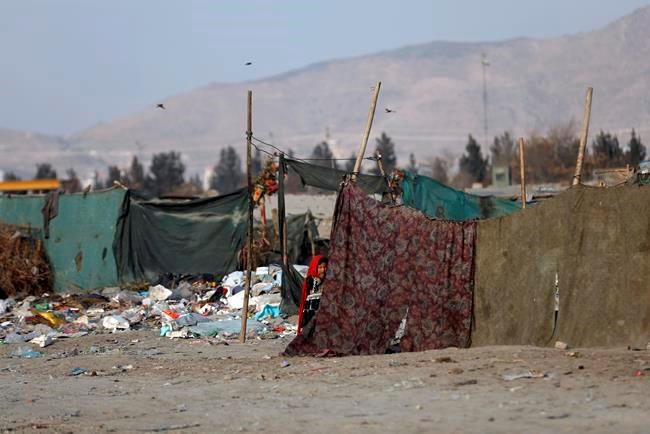KABUL — Some 10 million children in war-ravaged Afghanistan are at risk of not having enough food to eat in 2021, a humanitarian organization said Tuesday and called for $1.3 billion in new funds for aid.
Just over 18 million Afghans, including 9.7 million children, are badly in need of lifesaving support, including food, Save the Children said in a statement. The group called for $1.3 billion in donations to pay for assistance in 2021.
Chris Nyamandi, the organization's Afghanistan country director, said Afghans are suffering under a combination of violent conflict, poverty and the virus pandemic. “It’s a desperately bad situation that needs urgent attention from the international community,” he said.
The latest round of peace talks between the Taliban and Afghan government negotiators that began earlier this month in Qatar has been slow to produce results as concerns grow over a recent spike in violence across Afghanistan.
The pandemic has also had a disastrous impact on millions of Afghan families. In 2020, the World Bank estimated that the pandemic had hugely disrupted imports, including vital household items, which in turn led to rapid inflation. The added health and economic strains of the pandemic have deepened the humanitarian impact across the country.
Many Afghans also blame runaway government corruption and lawlessness for the country’s poor economy.
The U.N. and its humanitarian partners will seek $1.3 billion in aid for 16 million Afghans in need this year, U.N. secretary-general spokesman Stephane Dujarric, said this month. That’s up from an estimated 2.3 million people last year who needed life-saving assistance.
“It’s a huge increase in people who need aid,” he said.
Nyamandi said that with no immediate end in sight to the decades-long conflict, millions of people will continue to suffer. “It’s especially hard on children, many of whom have known nothing but violence," he said.
According to the U.N., nearly 6,000 people — a third of them children — were killed or wounded in fighting in Afghanistan between January and September last year, Nyamandi said. The violence continues to force hundreds of thousands of people to flee their homes every year and limit people's access to resources including hospitals and clinics.
In a Save the Children report in December, the group said more than 300,000 Afghan children faced freezing winter conditions that could lead to illness and death without proper winter clothing and heating. The organization provided winter kits to more than 100,000 families in 12 of Afghanistan's 34 provinces. The kits included fuel and a heater, blankets and winter clothes, including coats, socks, shoes and hats.
Nyamandi said the plight of the Afghan people is threatened by inadequate humanitarian funding pledged by wealthy nations at a conference in Geneva in November.
“Aid to Afghanistan has dropped alarmingly at a time when humanitarian need is rising. We’re now in the unsustainable position where aid falls far short of what’s needed to meet the needs of the people” he said.
The London-based Save the Children report cites 10-year-old Brishna from eastern Nangarhar province as saying her family was forced to leave their home and move to another district because of the fighting.
“Life is difficult," she said. “My father, who is responsible for bringing us food, is sick.”
Brishna said she and her brother collect garbage for cooking fires and it has been a long time since they had proper food and clothes. “My siblings and I always wish to have three meals in a day with some fruits, and a better life. But sometimes, we sleep with empty stomachs. During the winter we don’t have blankets and heating stuff to warm our house,” she said.
___
This story has been corrected to show that the aid group is calling for $1.3 billion, not $3 billion in aid money.
Rahim Faiez, The Associated Press


